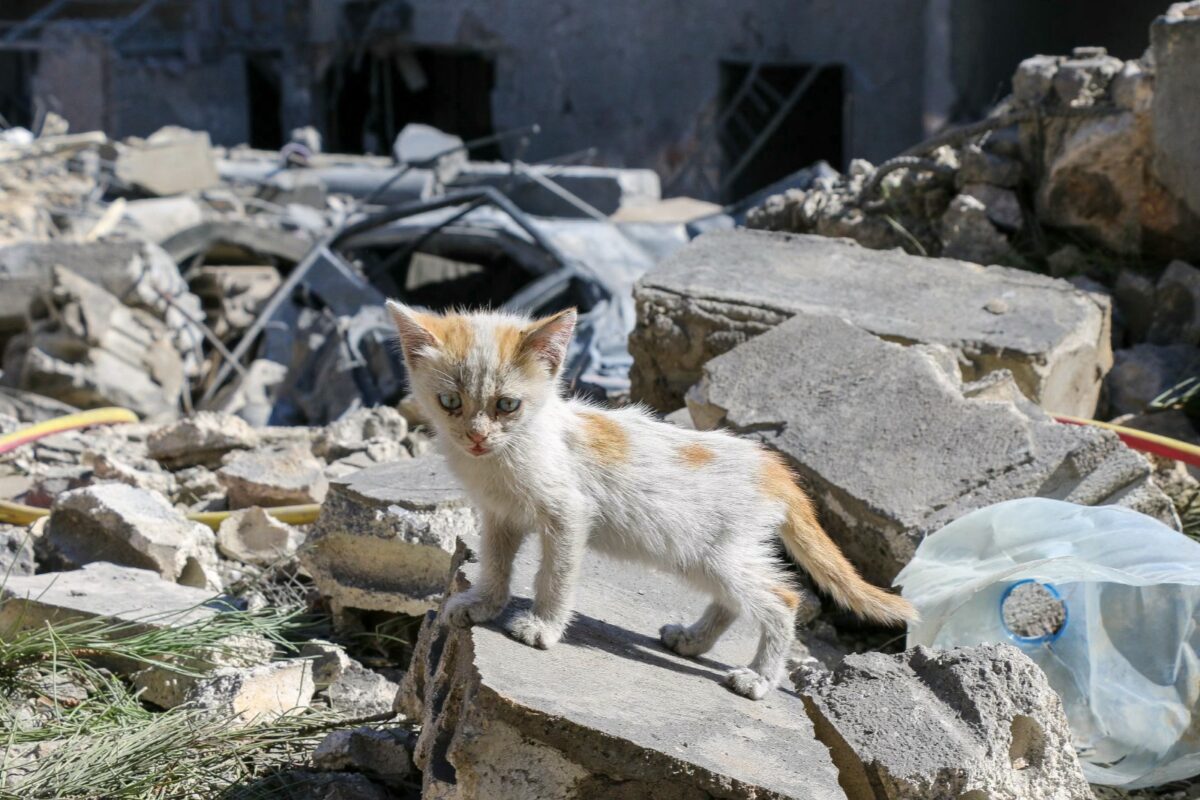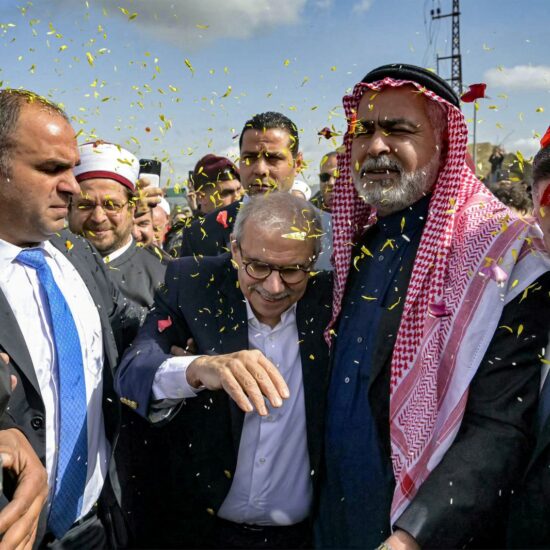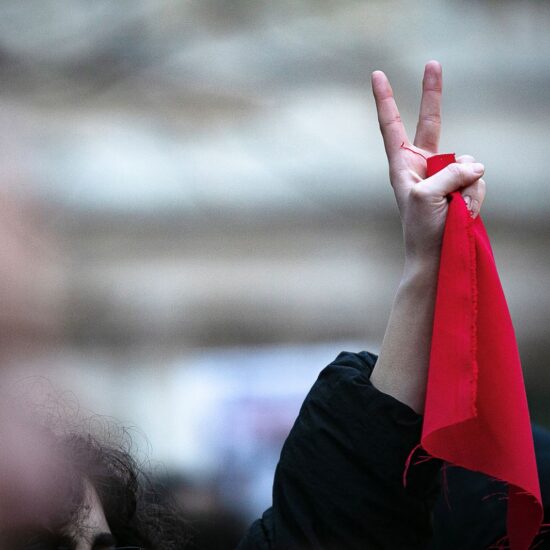
Israel is conducting a calculated military response with precision strikes on Iranian missile facilities to showcase its capabilities while avoiding escalation, as it also plans to conclude its ground operation in Lebanon within a week, limiting fighting to a 130-kilometre area along the border, amidst rising casualties and ongoing tensions.
In the midst of escalating war, Lebanon’s media faces a surge of fake news and targeted campaigns against journalists and outlets. Lebanon’s caretaker Minister of Information, Ziad Makary, announced that the Ministry will launch a fact-checking platform to combat misinformation. In a recent press conference, Makary urged Lebanese media not to engage with Israeli propaganda and to archive evidence of war crimes for potential legal action against Israel. Highlighting the recent deaths of journalists as proof of Israel’s threat, he reaffirmed Lebanon’s commitment to press freedom while cautioning against media manipulation that could endanger national security or displaced persons. Makary also noted that Lebanon hosts over 1,600 international journalists and called on the global community to act against what he described as Israel’s “killing machine.” The head of the Press Syndicate, Aouni Kaaki, echoed these concerns, asking Lebanese media to postpone internal disputes until peace is restored, emphasising that Israel is targeting the media for exposing its actions in Gaza and Lebanon.
Noticeably, while Makary was careful to underscore freedom of expression and that of the media, his undertone carried a breeze of warning to many who would criticise the ongoing absurdity of war and the role of Hezbollah as an agent of Iran.
Makary emphasised that the Ministry of Information is not responsible for punitive oversight of media but holds a national duty to protect its freedom and integrity. He reiterated that media freedom remains “sacred” in Lebanon but warned that its purpose is undermined when reporting is driven by factionalism or lacks professional rigour, especially in wartime. The government, he noted, has taken steps regarding the recent killings of journalists in Hasbaya and is coordinating with security agencies to monitor those inciting public discord.
Furthermore, A new chapter in the campaign against MTV recently unfolded when a manipulated video clip of former Prime Minister Rafik Hariri began circulating on social media. The clip misleadingly suggested Hariri was criticising MTV, while he was actually speaking about Al-Jadeed (NTV). Journalist Said Gharib, who conducted the interview over twenty years ago, set the record straight, explaining that at the time, MTV was shut down by order of then-President Emile Lahoud. Gharib recalled Hariri’s anger over the shutdown, describing how Hariri even declared he would personally reopen MTV if the situation persisted.
In Lebanon
A new visit: It’s uncertain if US envoy Amos Hochstein will visit Lebanon after a potential trip to Tel Aviv. If he does, he may bring new proposals aimed at facilitating a ceasefire, implementing UN Resolution 1701, and returning displaced persons along the borders. This follows Israel’s failure to advance in South Lebanon and Lebanon’s firm stance against previous US-Israeli proposals.
US Secretary of State Antony Blinken and UK Foreign Secretary David Lammy have discussed possible diplomatic solutions, hinting at emerging shifts, especially as rising casualties and resistance operations pressure Israel. With US elections approaching, Hochstein’s possible visit could represent a final attempt at securing a fair settlement or a temporary truce before further escalations.
Hopeful negotiations: Key ceasefire and prisoner exchange talks between Israel and Hamas resumed in Doha, involving Egypt, Qatar, the US, and Israel. These discussions, seen as more serious than previous rounds, are motivated by the US administration’s urgency to achieve progress in the Middle East before the November 5 elections. President Biden’s team hopes a breakthrough could boost election chances, evidenced by recent diplomacy from Secretary of State Antony Blinken and Special Envoy Amos Hochstein.
Egypt’s role has been crucial, with intelligence chief Hassan Rashad mediating between Israeli and Hamas leaders to lay the groundwork. The Doha talks are expected to focus on Egypt’s proposal: a ceasefire in exchange for the release of hostages.
First-time strike: An Israeli strike on the coastal city of Sidon in south Lebanon killed nine people and injured 38 others, marking the first time this particular area in Sidon has been targeted since the escalation of hostilities last month.
The strike hit a densely populated suburb of Sidon, where many families had sought refuge after being displaced from areas further south.
“The Israeli enemy’s raid on Haret Saida resulted in a… toll of eight killed,” the health ministry reported, revising an earlier count of two dead.
In The Region
An end soon?: Israel aims to conclude its ground operations in Lebanon within a week, focusing on a 130-kilometre stretch along the border from Ras Naqoura to the Shebaa Farms, covering around 20 towns. According to a security official, Israel has assured the US that it will limit the scope of its combat.
The move follows admissions from Israeli soldiers and security officials on the ground about the intensity of their clashes with Hezbollah, whose ambushes have inflicted significant losses. In just three days, more than 15 Israeli soldiers were reported killed, including four on Sunday in a building collapse after a commander ordered entry.
Meanwhile, northern Israeli cities like Haifa and other Arab towns face ongoing attacks, with one strike reportedly hitting a weapons factory, adding to the region’s heightened tensions.
Tehran attacks: Military experts view Israel’s recent strikes on Iran as a calculated and measured response aimed at showcasing its military capabilities without escalating tensions in the volatile Middle East. These precision strikes targeted missile manufacturing facilities and air defence systems across Iran, marking the first significant foreign attack on Iranian soil since the Iran-Iraq war, though they were intentionally limited in scope.
Analysts note that the attacks on Tehran highlighted Israel’s ability to penetrate Iranian airspace and effectively neutralise air defences while avoiding civilian casualties, contrasting sharply with Iran’s recent missile barrage. Raphael S. Cohen from RAND’s Project AIR FORCE commented on the restraint displayed by Israel, emphasising that while it was expected for Israel to strike after weeks of signalling, the measured nature of the response was noteworthy.
What We’re Reading
Framing Alia Mansour: NOW’s Deputy Editor in Chief and Lebanese-Syrian journalist Alia Mansour was detained in a State Security raid over fabricated charges, raising concerns about press freedoms, selective advocacy, and the targeting of political critics in Lebanon, Dana Hourany reported.
What’s wrong with UN Resolution 1559: Khalil Gebara provided an insight into UN Resolution 1559, its call for the disbanding and disarmament of all Lebanese and non-Lebanese militias in the country, and how its terminology – stronger than 1701 – makes its implementation so reluctant.
The struggle for currency stability: Maan Barazy’s latest piece delved into how stability prospects look dim as Lebanon’s Central Bank (BDL) is injecting more dollars for stabilisation, with 1.4 trillion Lebanese liras taken out of circulation, intervention costing BDL 344 million dollars in two weeks, and financial sector deposits downing 434.36 million dollars.
Mental health spiralling amidst war: Lebanon was already in the middle of a mental health crisis. Now the war is adding another layer of acute trauma to an already vulnerable population that has endured multiple challenges over the past five years, making the demand for psychiatric support overwhelming, Rodayna Raydan reported.
The state must return: On the brink of repeating the same mistakes of its troubled past, the Lebanese government finds itself again to give up on the protection of its citizens, leaving the ground to non-state actors, Ramzi Abou-Ismail wrote for NOW.
Not for Syrians: As Syrian refugees fleeing the escalating conflict in Lebanon are denied access to the majority of shelters in the country, doubly-displaced are left with little options: sleeping in the streets, as winter approaches; taking the dangerous sea road, often facing rejection by Western sea authorities; or going back to Syria, a country torn by 13 years of another, devastating war. Already facing a hostile climate of xenophobic hatred against them in Lebanon, for 1.5 million people, nowhere is a safe place, Valeria Rando reported.
Lebanon +
In this episode of the Kalam podcast, guest Ralph Baydoun discusses the ongoing war in Lebanon, offering insights into its historical context, the complexities of the current situation, and the impact on civilians. He examines the role of various political factions, the challenges of governance during conflict, and the humanitarian crisis affecting displaced populations.








